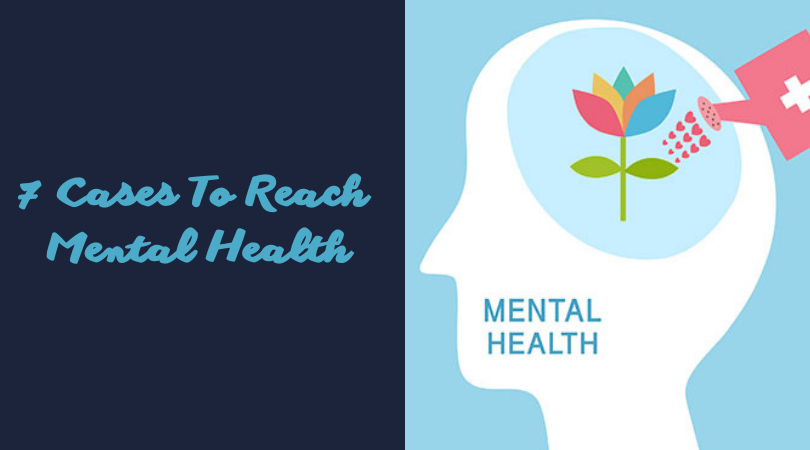 Mental health is a state of well-being in which everyone realizes their potential, is able to cope with normal life stresses, can work productively and fruitfully and contribute to the development of society.
Mental health is a state of well-being in which everyone realizes their potential, is able to cope with normal life stresses, can work productively and fruitfully and contribute to the development of society.
7 ways to improve mental health
Even if you don’t have a stated diagnosis, such as anxiety or depression, it is very important to prioritize your emotional well-being and continually focus on improving it.
Case #1: keep a healthy relationship
Loneliness is an epidemic in the modern world. More people than ever feel isolated, anxious, and depressed. One study found that loneliness has the same effect on life expectancy as obesity or smoking, and shortens it by 15 years.
Having strong interpersonal relationships benefits us in many ways. It helps to feel like a part of the community, gives meaning to life, makes you feel important, and keeps you confident that we have people we can rely on during difficult times.
Case #2: use social media wisely
In general, having social contacts is associated with improved mental health. However, maintaining friendships through Facebook and other social networking sites can be fraught with some problems.
Researches show that people feel worse after viewing posts from more successful friends. Other studies show that overuse of social media increases the risk of depression, anxiety, impaired sleep, and lowered self-esteem.
This does not mean that you should retire from social networks. However, try to limit their use, unsubscribe from people you don’t need, and also adhere to the rules of information hygiene.
Case #3: exercise
Exercise can help you sleep better, make you feel more relaxed, and increase the production of endorphins that will lift your mood.
You don’t need to practice high-intensity interval training to reap the benefits of exercise. According to the National Institute of Mental Health guidelines, you only need to walk 30 minutes every day to improve your mood and reduce stress. Plus, just five minutes (that’s the length of one song) of aerobic exercise or cardio can help reduce anxiety, according to the Anxiety and Depression Association of America (ADAA).
However, the US Department of Health recommends 150 minutes of low-intensity exercise (walking or cycling) or 75 minutes of more intense activity (running) per week for maximum effect.
Case #4: get healthy sleep
Another study showed that people who reported insomnia were four times more likely to become depressed over the next 3 years. Scientists have determined that a person must sleep 7-8 hours for the brain to function normally.
However, time is not the only indicator of quality sleep. If you wake up 10 or 15 times every night, you won’t feel like you slept and rested well. If you are familiar with this problem, try practices that will help you achieve better sleep, such as meditation.
Exercise every day, eat a well-balanced diet, and try to eliminate things like caffeine, alcohol, and smoking that can negatively affect sleep. Keep your bedroom dark, cool, and quiet.
Case #5: spend at least two hours a week outdoors
Scientists have long noticed that connecting with nature improves mental health. A study published in June 2015 in the journal Proceedings of the National Academy of Science found that walking for 90 minutes in nature can reduce brain activity in an area called the subgenual prefrontal cortex. This site is active when we reflect on negative thoughts. Walking along a busy road did not calm this area.
This is just one study among many similar ones. In 2018, scientists found that people who traveled through the natural environment on a daily basis had the best indicators of mental health.
Scientists advise to spend at least two hours a week or 15-20 minutes daily in nature in order to achieve optimal effect.
Case #6: Learn new
According to the UK’s National Health Service (NHS), study is another way to support mental health.
The NHS claims that people who continue to study after graduation from high school and university report higher well-being and greater ability to cope with stress. Setting goals and achieving them can create positive feelings of self-satisfaction. Learning often involves interacting with other people. It can also increase your well-being by helping to build and strengthen social relationships.
Keep learning all your life: sign up for a cooking class or try mnemonics, get first aid training, or learn how to set up social media ads. The main thing is to learn something new every day.
Case #7: Practice gratitude
If you’ve ever felt overly anxious, stressed, or depressed, you’re probably familiar with the onslaught of endless negative thoughts. One of the best ways to combat this is to practice gratitude.
There are countless ways to practice gratitude. One simple and effective way is to keep a gratitude journal every morning or evening. Spend 10 or 15 minutes writing down small or big moments and things that you are grateful for. Try to list 3 to 10 things. It could be your family, work, nice weather, or a compliment from a colleague. As the study shows, this method really works.
